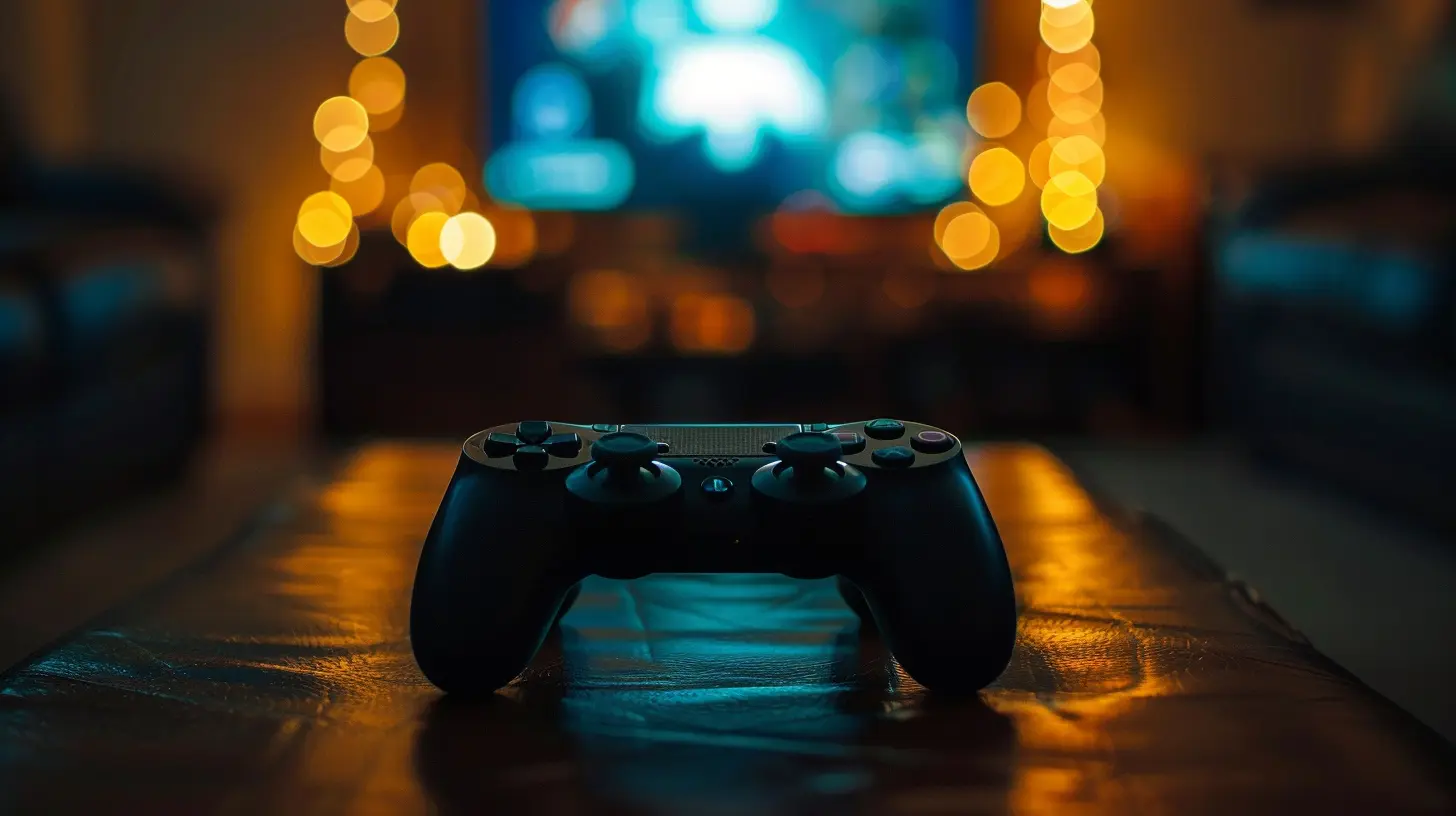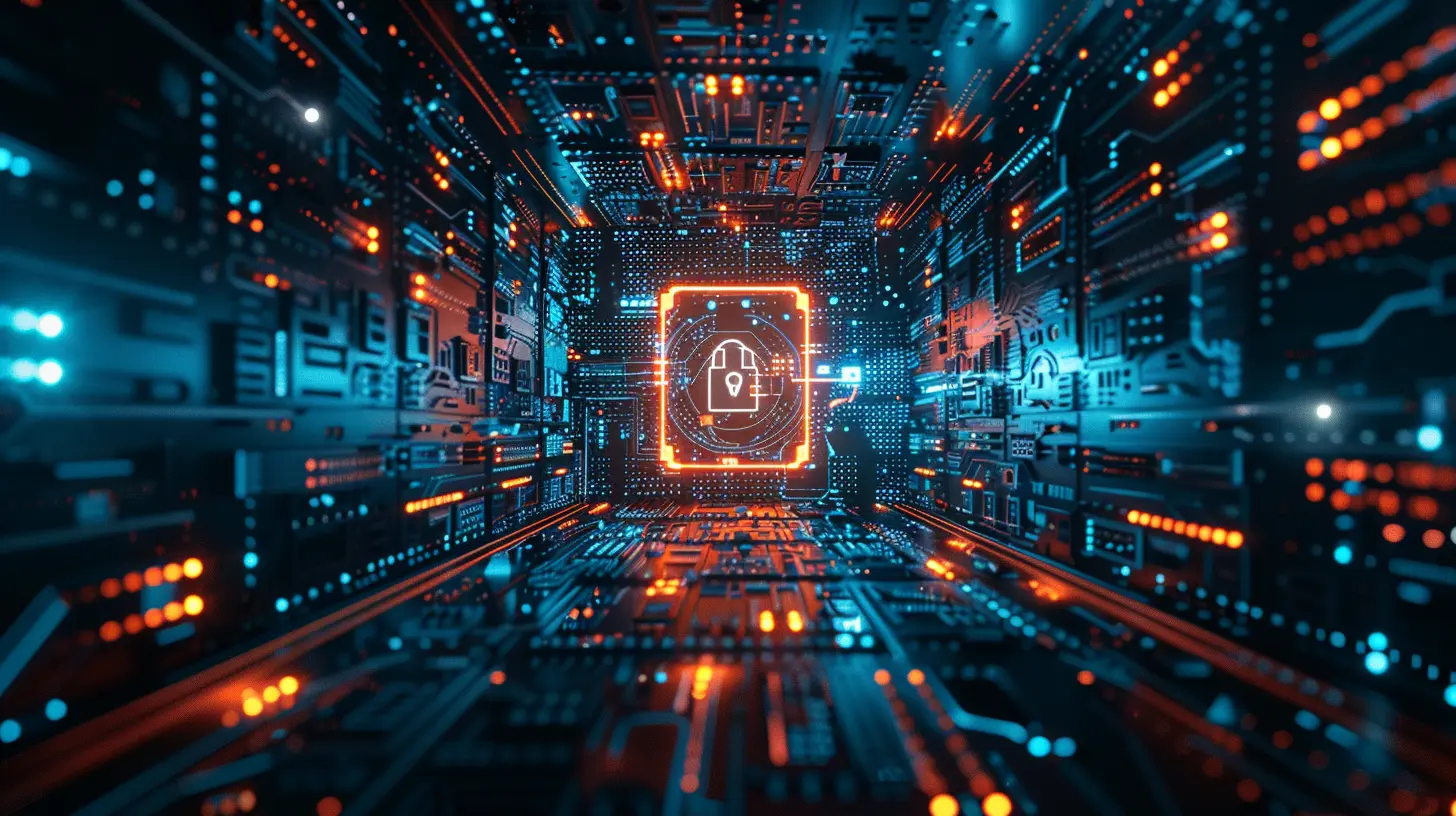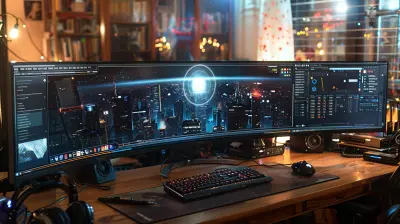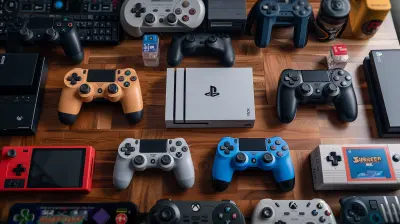4 February 2025
Gaming online is an absolute blast, right? Whether you're exploring vast open worlds, teaming up with friends to take down epic bosses, or just racking up some hours in your favorite multiplayer shooter, online gaming is where the magic happens. But, let’s face it—this digital playground comes with its fair share of dangers. From sneaky hackers to pesky malware, your beloved gaming setup could be a prime target if you're not careful. So, how do you make sure your gaming PC stays locked up tighter than a treasure chest? Don’t worry; I’ve got your back. Let’s talk about how to secure your PC for online gaming.
Why Is PC Security Important for Gamers?
Think of your gaming PC like the fortress of a castle, and your data, accounts, and digital identity are the treasures inside. Just like a castle needs moats, walls, and guards, your PC needs defenses to keep out invaders.When you’re gaming, you’re often connected to the internet for hours, downloading files, chatting with teammates, or logging into gaming platforms with your credentials. This wide-open exposure can attract hackers, scammers, and malware. A single breach could cost you your accounts, personal data, or even real money. Nobody wants that, right? So, securing your PC isn’t just important—it’s essential.
1. Keep Your Operating System and Drivers Updated
Let’s kick things off with the basics: updates. Yeah, I know, updates can be annoying. But skipping them is like leaving your front door unlocked. Software updates patch security vulnerabilities that hackers love to exploit.- Enable Automatic Updates: Make sure your operating system (Windows, macOS, etc.) is set to update automatically. Don’t slack on this one—it’s a biggie.
- Update Your Drivers: Especially those GPU drivers! Not only will updated drivers improve your gaming performance, but they’ll also ensure your system is less vulnerable.
- Check Gaming Platforms: If you’re using platforms like Steam, Epic Games Store, or Battle.net, keep them updated too. Outdated software can be an open door for trouble.
2. Install a Reliable Antivirus Program
An antivirus program is like the trusty sword in your security arsenal. Sure, it might not make gameplay smoother, but it’ll make sure no malware hijacks your PC mid-battle.- Choose a Gamer-Friendly Antivirus: Look for antivirus solutions with “gaming mode” features. These are designed to run quietly in the background without interrupting your sessions.
- Stay Away from Freebies: Free antivirus programs can be effective, but they might lack advanced features or—worse—come with hidden risks. Opt for trusted names like Norton, Bitdefender, or Kaspersky instead.
- Schedule Scans: Regularly scan your PC for any malicious files. It’s like taking out the trash—better safe than sorry!
3. Enable a Firewall
Think of a firewall as your PC’s gatekeeper. It monitors incoming and outgoing network traffic and decides whether to allow or block it based on security rules. Without one, you’re kinda like a knight in shiny armor… but no shield. Not ideal.- Stick to the Built-In Firewall: Both Windows and macOS come with built-in firewalls that are easy to enable and use.
- Advanced Options: If you want an extra layer of protection, consider third-party firewall software like Comodo or ZoneAlarm for more control.
4. Secure Your Wi-Fi Connection
Your Wi-Fi connection is the highway that connects your PC to the internet. If it’s not secure, anyone could sneak in and snoop around. And trust me, you don’t want that.- Use a Strong Password: Don’t stick with the default password on your router. Change it to something unique, with a mix of letters, numbers, and symbols.
- Enable WPA3 Encryption: It’s the latest and most secure Wi-Fi encryption standard. If your router supports it, make sure it’s enabled.
- Avoid Public Wi-Fi: Gaming on public Wi-Fi is like walking through a dark alley covered in gold jewelry—not a good idea. If you must use it, at least connect through a VPN.
5. Use a Virtual Private Network (VPN)
Speaking of VPNs, let me tell you—they’re a game-changer. A VPN encrypts your internet connection, making it harder for hackers to intercept your data. It’s like a cloak of invisibility for your online activities.- Choose a Low-Latency VPN: If you’re gaming, you’ll want a VPN that won’t drag your ping into the dirt. Services like ExpressVPN, NordVPN, or CyberGhost offer low-latency servers perfect for gamers.
- Connect to the Nearest Server: For the best performance, connect to a VPN server that’s physically close to your location.
6. Protect Your Gaming Accounts
Your gaming accounts hold more than just your in-game progress—they often have your payment details, personal info, and more. Losing access to them can be a nightmare.- Enable Two-Factor Authentication (2FA): This adds an extra layer of security to your accounts. Even if someone gets your password, they’ll need a verification code to log in. Easy win, right?
- Use Strong Passwords: Don’t reuse passwords across accounts. Use a mix of uppercase, lowercase, numbers, and symbols. Better yet, use a password manager to create and store unique passwords for you.
7. Be Wary of Phishing Attempts
Hackers don’t always use fancy tools to get into your PC. Sometimes, they just trick you into letting them in. Phishing is one of their favorite methods.- Don’t Click Random Links: Whether it’s an email, a DM on Discord, or a random website, think twice before clicking a link. If it sounds too good to be true, it probably is.
- Verify Sources: If an email claims to be from a gaming platform or service, double-check the sender’s email address and URL. Official companies don’t ask for sensitive info out of the blue.
- Avoid Downloading from Sketchy Sites: Stick to official websites for game downloads. Third-party sites can be a breeding ground for malware.
8. Turn Off Unused Features
Not every feature or app on your PC is necessary for gaming. In fact, some of them might be security risks.- Disable Remote Desktop: Unless you really need it, keep this turned off. It’s like leaving a spare key under the mat—tempting for intruders.
- Turn Off Unnecessary Sharing: Features like file sharing can be helpful, but they can also be exploited if left on. Make sure to disable them when not in use.
9. Regular Backups Are a Must
Imagine losing everything—games, save files, screenshots—just because something went wrong. Heartbreaking, right? Regular backups are your safety net.- Use an External Hard Drive or Cloud Storage: Back up your important files and data regularly. For gamers, this includes save files, mods, and game settings.
- Schedule Automatic Backups: Most systems let you set up automatic backups, so you don’t even have to think about it.
10. Monitor Your PC for Suspicious Activity
Finally, always keep an eye on your PC. If something feels off—lag spikes, random programs opening up, or unexpected pop-ups—it’s time to investigate.- Check Task Manager: On Windows, use the Task Manager to see if any unfamiliar programs or processes are running.
- Run a Malware Scan: If you suspect something’s wrong, run a full scan with your antivirus software.
- Stay Informed: Follow gaming and tech news to stay updated on any new security threats or vulnerabilities.
Final Thoughts
Gaming should be about fun, not frustration. By taking these steps to secure your PC, you’re not only protecting your data and accounts—you’re also safeguarding your entire gaming experience. Trust me, nobody wants to deal with a hacked account or a malware-ridden system when they could be slaying dragons or scoring goals in Rocket League. It doesn’t take a ton of effort to keep your PC safe, and the peace of mind it brings is totally worth it.So, suit up your digital defenses and get back to gaming like the legend you are. Because when it comes to online gaming, safety is just as important as skill. You’ve got this!






Emmeline Torres
Prioritize strong passwords and two-factor authentication for safety.
March 31, 2025 at 3:57 AM